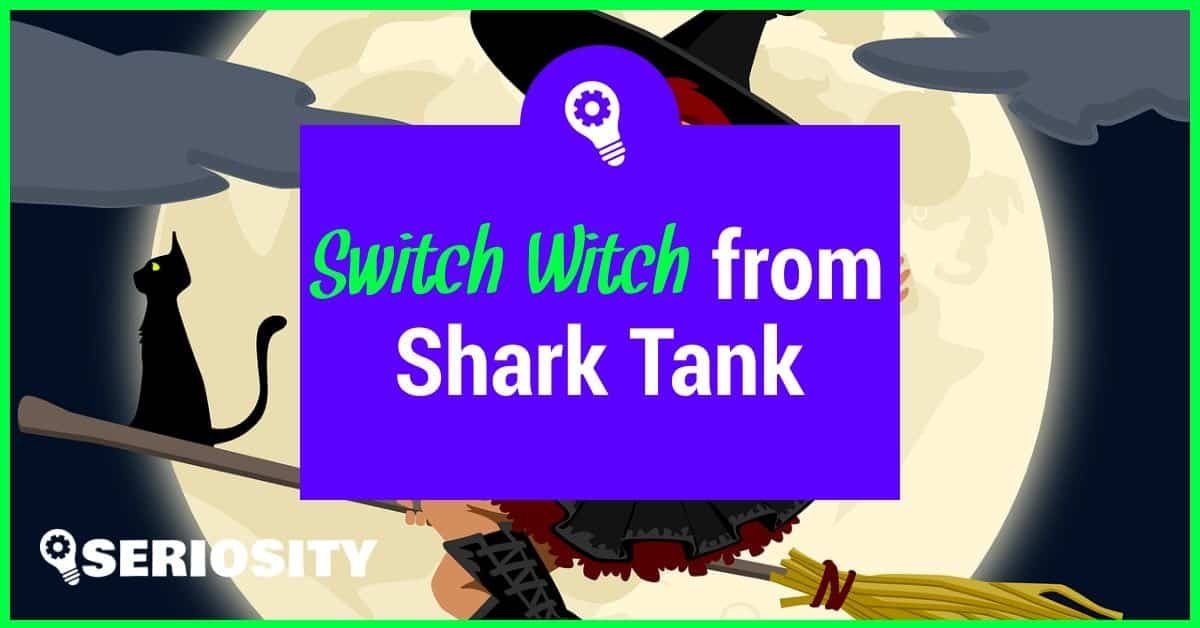Switch Witch is a Halloween-themed business that targets parents who do not want their kids to consume all the sweets that they get during their trick-or-treat excursions.
You can equate the Switch Witch with the tooth fairy. The only difference is that, instead of placing a tooth under their pillows, children are required to leave their sweets out for the Switch Witch to collect. The Switch Witch will then take the candies, and replace them with an amusing, non-edible surprise – a plush doll or guy.
This is how, by employing the Switch Witch, parents can reduce the number of candies that their kids eat during Halloween.
Switch Witch was founded by Rob Bouley and his sister-in-law, Lara Riley. The co-founders belong to Salem, Massachusetts.
Bouley ran an ice-cream store, which is how he realized that, while an occasional treat is fairly harmless, binging on sweets and sugary items is never a good idea.
Upon hearing the Switch Witch ‘tale’ in the year 2013, Bouley realized that this could be converted into a business.
Riley was hired as a reading specialist, and was tasked with coming up with the narrative for a plush toy company.
Bouley and Riley eventually came up with the narrative line – the Switch Witch asks children to behave, much like a Santa Claus.
Parents can even hide the toys, so that the family can add a good-old game of hide-and-seek to the mix.
In July 2014, Bouley initiated a Kickstarter campaign to try and raise $14,500 to launch his product, but the effort did not come to fruition.
However, since then, he has managed to acquire the funds to develop the product; the Switch Witch can be purchased through the company website as well as via Amazon.
Is Switch Witch Still an Active Business?
Yes, Switch Witch is still an active business. You can find the products on their website, Amazon, and the Paper Store, as well as in Hallmark stores present in Massachusetts, New Hampshire, and Maine.
Ever since the company appeared on the Shark Tank (more on that below), it has taken a more seasonal approach towards sales and marketing: there is a lot of activity between mid-August and Halloween, after which things slow down until the next August.
How Did the Shark Tank Pitch Go?
Lara and Rob made their Shark Tank appearance during episode five of the seventh season, and were accompanied by three children dressed in Halloween costumes (one of whom was dressed up as a Shark). The owners were seeking an investment of $55,000 in exchange for a 25% stake in the company – a valuation of $220,000.
While the kids emptied their candy bags, Lara and Rob explained the business narrative. Once the bags were emptied, the Switch Witch traded the kids’ candies for non-edible presents.
Kevin was the first to speak up, joking about the legal consequences of stealing candies.
Robert wanted to know a bit more about the procedure through which the kids give up their candies. Lara explained that the kids need not give up all of their candies, but only some of them.
Rob then takes over, mentioning that this concept has been around for quite some time, before getting down to the sales figures. In its first year, Switch Witch had managed to sell 815 units and generate revenue of $15,700.
A major proportion of the sales were made online, while the remainder was achieved through craft events and door-to-door selling.
The Sharks were quite surprised at the low amount of sales. Mark, in particular, thought that this idea should have taken off and gone viral.
Kevin does appreciate the merits of this product, but does admit that the ‘toy’ is nothing more than non-proprietary plush, and therefore, felt that the product was not defensible.
Robert then spoke up, saying that he loved Halloween candy far too much to invest in Rob and Lara’s business.
Lori had signed deals with similar Hanukkah and Christmas products. However, unlike these two festivals, Halloween is just a single day and not a whole season, and the seasonality was too severe. For this reason, she, too, stepped out of the deal.
Mark said that, instead of solving a problem, this business was adding more stress to that problem. He further added that Switch Witch needed to become popular and viral organically – something that had not happened so far. Mark, too, decided to bow out.
Daymond said that Switch Witch, at this stage, seemed more like a hobby. While he did concede that it might become a nice, respectable business in the future, it was too early to ascertain that. On that note, Daymond also excused himself from this offer.
Unfortunately, Switch Witch had to return from the Tank without securing a deal.
The absence of a trademark and a unique name has significantly affected the business. Ever since Switch Witch became popular through Shark Tank, a number of knockoffs with the same name have started doing the same thing as the original.
Our Review of Switch Witch After their Shark Tank Appearance
Switch Witch seems like a pretty good concept, and, alongside being about being good and getting rewards, it can also teach children about responsibilities, choices, and decisions. Even though the product has been specifically designed for Halloween, there is nothing stopping parents from using at any time throughout the year.
On the other hand, there are parents who might feel that kids should be allowed to stay, which means letting them enjoy as much candy as they want for one day.
Pros of Switch Witch
- Fun and creative
- Promotes healthy choices among kids
Cons of Switch Witch
- Slightly overpriced
Are There Any Alternatives?
Apart from the knockoffs that we mentioned earlier, we did not identify any legitimate alternatives or competitors for Switch Witch.
Our Final Thoughts
Switch Witch materialized the concept of the tale by turning it into a business. Even though the company was not able to secure a deal on Shark Tank, it appears to be doing pretty well and is still in business at the time of writing.






